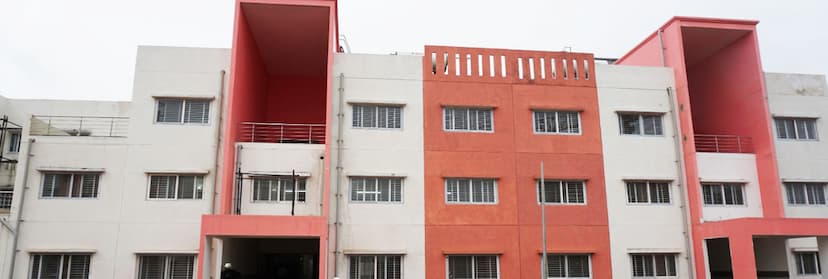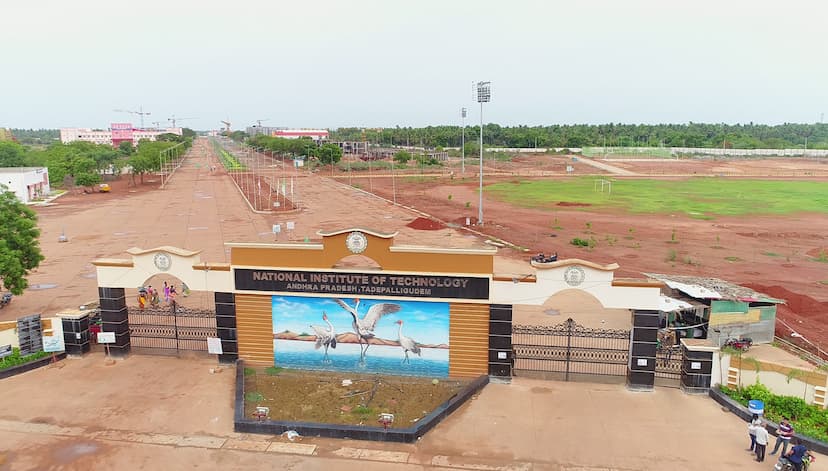Faculty Development Programme held at great NIT AP

Faculty Development Programme at NIT AP was held from 3 to 7 January this year. NIT AP is encouraging its faculty and researchers towards advancements in the field of Biovalorisation.
With that purpose in mind, NIT AP organised a five day online faculty development programme on ‘Biovalorisation: Trend and Prospects of Value-Added Products’ from 3 to 7 January.

Read More – best colleges in kolkata

Thus, contribute significantly to India’s economy to achieve the goals of National Missions like Swachh Bharat, and Make in India – providing a clean environment and generation of value-added chemicals at a lower cost.
This Faculty Development Programme aims to bring advancements in the field of Bioenergy through waste utilization and minimize the dependency on fossil-based fuels to improve energy security.

Also Read – JELET Exam 2022
Inauguration of Faculty Development Programme
Addressing the inaugural event of the faculty development programme, Professor C.S.P. Rao, Director, NIT AP said majority of the waste is produced from domestic, agricultural and industrial practices.
Management and treatment of a large volume of waste is a very challenging task. Biological treatment of waste with micro-organisms is promising for the treatment of the broad spectrum of waste in an economical method.

Further, we can couple the treatment process to generate energy and by employing Biovalorisation value-added products can be produced from waste, he said speaking at the inaugural of faculty development programme.
He further said the faculty development programme is emphasized on bridging the gap of ever-increasing demand for technologies that treat the waste in an effective and economical manner as well as resource recovery in the form of energy or platform chemicals.
This will encourage the researchers for carrying out their research with the aim of the utilization of waste as feedstock for the production of energy and valuable commercial products, he said speaking at the inaugural of the faculty development programme.


Ø Glyco genomics
Ø Bioconversion of organic waste
Ø Biomass Valorization
Ø Renewable chemical production
Ø Bio-economy
Ø Industrial waste treatment

Delivering the inaugural lecture at the faculty development programme, he said with the rapid increase in world population and industrialization, the generation of waste from various sources is on a constant rise.
‘Handling the large volume of waste is a challenging task especially in developing countries like India. Conventional treatment methods were found to be very expensive and also pose challenges for safeguarding public health.’
The biological route using microbial cells offers a potentially cost-effective alternative to overcome the challenges in waste management and production of commercially important products by biovalorisation methods, he said delivering the inaugural lecture at the faculty development programme.
Especially by employing micro-organisms, we can transform the waste to generate commercial products such as biomass, bioethanol, biodiesel, food products, and other value-added products, he said.

Ø Application of modern genomic techniques
Ø Technology translation from lab to industry
Ø Approaches for transforming waste into commercial products
Ø Integration of waste management for bio-economy.
Ø Food and environmental perspectives of industrial waste
Lecture
Dr. Ravindra Pal Singh, Research Scientist, National Agri-Food Biotechnology Institute Mohali delivered a lecture on ‘Digging Glycogenomics of the human gut microbiota’ at the faculty development programme.
With the rapid increase in world population and industrialization, the generation of waste from various sources is on a constant rise. Handling the large volume of waste is a challenging task especially in developing countries like India, he said delivering the lecture during the faculty development programme.
‘Conventional treatment methods were found to be very expensive and also pose challenges for safeguarding public health.’
The biological route using microbial cells offers a potentially cost-effective alternative to overcome the challenges in waste management and production of commercially important products by biovalorisation methods, he said.
Especially by employing micro-organisms, we can transform the waste to generate commercial products such as biomass, bioethanol, biodiesel, food products, and other value-added products, he said delivering the lecture at the faculty development programme.
Read More – Best BCA College in Patna

Top speakers
The top speakers at the faculty development programme included:
Ø Dr. Ravindra Pal Singh, Research Scientist, National Agri-Food Biotechnology Institute Mohali
Ø Dr. A. Gangagni Rao, Chief Scientist, Indian Institute of Chemical Technology Hyderabad
Ø Dr. Narasimhulu K, Associate Professor, National Institute of Technology Warangal
Ø Dr. Sudesh Kumar Yadav, Scientist G, Center of Innovative and Applied Bioprocessing Mohali
Ø Dr. Bhasker T, Senior Principle Scientist, Indian Institute of Petroleum Dehradun
Ø Dr. Rajinikanth Rajagopal, Research Scientist, Sherbrooke Research & Development Centre, Government of Canada
Ø Dr. Sathyanarayana N Gummadi, Professor, Indian Institute of Technology Madras

Vote of thanks
Dr. M.R.D.S. Nitish Venkateswarlu, Faculty Development Programme coordinator, Department of Biotechnology, NIT Andhra Pradesh, expressed his gratitude to all the participants from various academic institutes for making the Faculty Development Programme a success.
S Vishnu Sharmaa now works with collegechalo.com in the news team. His work involves writing articles related to the education sector in India with a keen focus on higher education issues. Journalism has always been a passion for him. He has more than 10 years of enriching experience with various media organizations like Eenadu, Webdunia, News Today, Infodea. He also has a strong interest in writing about defence and railway related issues.








